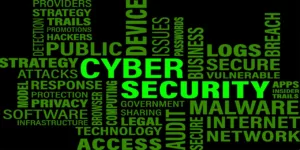The cybersecurity market was valued at USD 120 billion in 2018 and is estimated to reach over USD 260 billion in the coming five years. Internet penetration, vulnerable wireless networks and growing numbers of data centres have increased the number of cyber attacks. Stricter regulations regarding data privacy paired with the swelling number of cyber attacks is pushing the demand for cybersecurity.
Where there is demand there is opportunity
U.S. Department Of Labor predicts information security jobs will grow much faster than other occupations, mainly because small and mid-size companies are also moving to the cloud, making them more vulnerable to attacks.
Statistically cybersecurity specialists are making on average around USD 100K per year, %15 more than their counterparts in other computer occupations.
From financial services over health care to retail, there is hardly an industry that will or does not already need digital security solutions.
Career chances
Cybersecurity originally referred to preventive methods to protect information from being stolen, now it is broadly used for any defensive, or offensive, action related to information and technology security.
Data is the new oil, everyone wants it and everyone needs to protect what they already have. From small businesses to the Defense Department, there are jobs for cybersecurity specialists in every industry. It doesn’t stop at data, self-driving cars, airplanes, traffic lights, power grids and even vacuum cleaners can be hacked nowadays. The industries that have a demand for cyber security is sheer endless.
So what skill sets do you need to get a cybersecurity job?
Industry Certificates
Certificates are a third party’s verification of your skill and knowledge in a certain field. You could land freelance jobs based on your track record, without any certificates, but as an employee or professional you will have trouble getting a job or promotion without certifying your skills.
Most industry giants have their own certification programs like Microsoft Technology Associate or Cisco Certified Network Associate but there are also vendor-neutral IT certifications. CompTia has a helpful career roadmap page where you can see a list of available information security certificates ordered according to skill levels.
Regardless if someone is a newbie starting a career, a veteran changing industries, or an IT specialist expanding their skills, the best approach is to mingle with the crowd and get involved in the cybersecurity industry.
Experience
You can build experience over time, and the more experienced you become, the better your prospects – whether you are employed or a freelancer.
Most government departments and larger companies are looking for five+ years of experience.
You can join cybersecurity hackathons and focus on improving your skills. You can use such commitments to enrich your cybersecurity portfolio, which reflects experience. Don’t shy away from gaining experience the best way you can – be eager to help out, even if you’re not making any money out of it.
If volunteering or attending hackathons is not your cup of tea, you can try out personal cybersecurity projects such as SQL injection prevention, online transaction fraud detection and school security systems.
In most cases experience in other fields like finance, science or security will compensate for the lack of direct cybersecurity experience. Adding cybersecurity skills to your cv is sometimes enough to get you promoted to a higher paying job in your company.
Academic Degree
Information security or cybersecurity hasn’t been around so long and is new to many curriculums. A big advantage is that cybersecurity is one of the degrees you can get online.
With education costs skyrocketing and the endless debates about student debt, saving up to 75 percent on a Bachelor’s Degree that can bring you a six digit salary is worth a thought. Maryville University even integrates industry certification into the program, so you get a degree and a load full of certificates.
Trustworthiness
Having a degree and job experience are two of the most important criteria for getting a good job but you will never get a good job if your employer doesn’t trust you, especially if you want your future employer to be the Government.
If you will be having access to sensitive information then it is normal that you get a background check, be it in the private sector or government offices. The first thing investigators look into is criminal and credit records, and most probably nowadays also social media profiles.
In the digital age your past does not fade away, it always comes back to haunt you. If you want to stay on the light side of cybersecurity then you should try to avoid any negative actions that can be later held against you.








